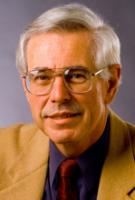
Abstract
There are tens of millions of km of pipelines worldwide used in water supplies, gas and liquid fuel delivery systems, electric power networks, and wastewater conveyance facilities. An overview of these critical infrastructure assets is provided. Soil-structure interaction affecting pipeline and underground conduit response to externally imposed ground deformation is examined, starting with stress transfer from soil to the circular surface of the pipe. Various models for soil-pipeline interaction are described, and a methodology is proposed for evaluating soil-pipeline interaction in granular soils for any direction of pipe movement at any depth. Suction-enhanced soil reaction to relative soil-pipe movement is discussed. Guidance is provided regarding soil-pipeline interaction modeling in which the pipeline is represented as a beam vs a three-dimensional shell. Large-scale laboratory testing and numerical modeling for the next generation hazard-resilient pipelines are described, and innovative ways of accommodating ground deformation are illustrated. Water supply system response to widespread liquefaction-induced ground deformation during the Canterbury Earthquake Sequence in New Zealand is evaluated with high density LiDAR and GIS analyses, and a methodology is presented for estimating pipeline damage as the combined response to liquefaction-induced differential settlement and lateral ground strain. The community impact of pipeline system performance is illustrated with respect to the role that the water supply plays in fire suppression in San Francisco.
Biography
Tom O’Rourke is the Thomas R. Briggs Professor of Engineering in the School of Civil and Environmental Engineering at Cornell University. He is a member of the US National Academy of Engineering, Distinguished Member of ASCE, International Fellow of the Royal Academy of Engineering, Member of the Mexican Academy of Engineering, and a Fellow of the American Association for the Advancement of Science. He received a number of distinctions for his research and teaching, including the Stephen D. Bechtel Pipeline Engineering and Ralph B. Peck Awards from ASCE. He gave the 2009 Rankine and 2016 Terzaghi Lectures. He served as President of the Earthquake Engineering Research Institute (EERI) and as the chair or member of many professional society committees. He received the George W. Housner Medal from EERI in 2016. He authored or co-authored over 380 technical publications. His research interests cover geotechnical engineering, earthquake engineering, underground construction technologies, engineering for large, geographically distributed systems, and geographic information technologies and database management. He served as an advisor on more than 120 projects in 13 different countries, including United States, United Kingdom, Angola, Canada, Ecuador, France, Mozambique, New Zealand, Nigeria, Russia, Trinidad, Turkey, and Venezuela. He testified before the U.S. House of Representatives Science Committee on numerous occasions. He served on government advisory boards, as well as the consulting boards or peer reviews for many projects associated with highway, rapid transit, water supply, and energy distribution systems.
